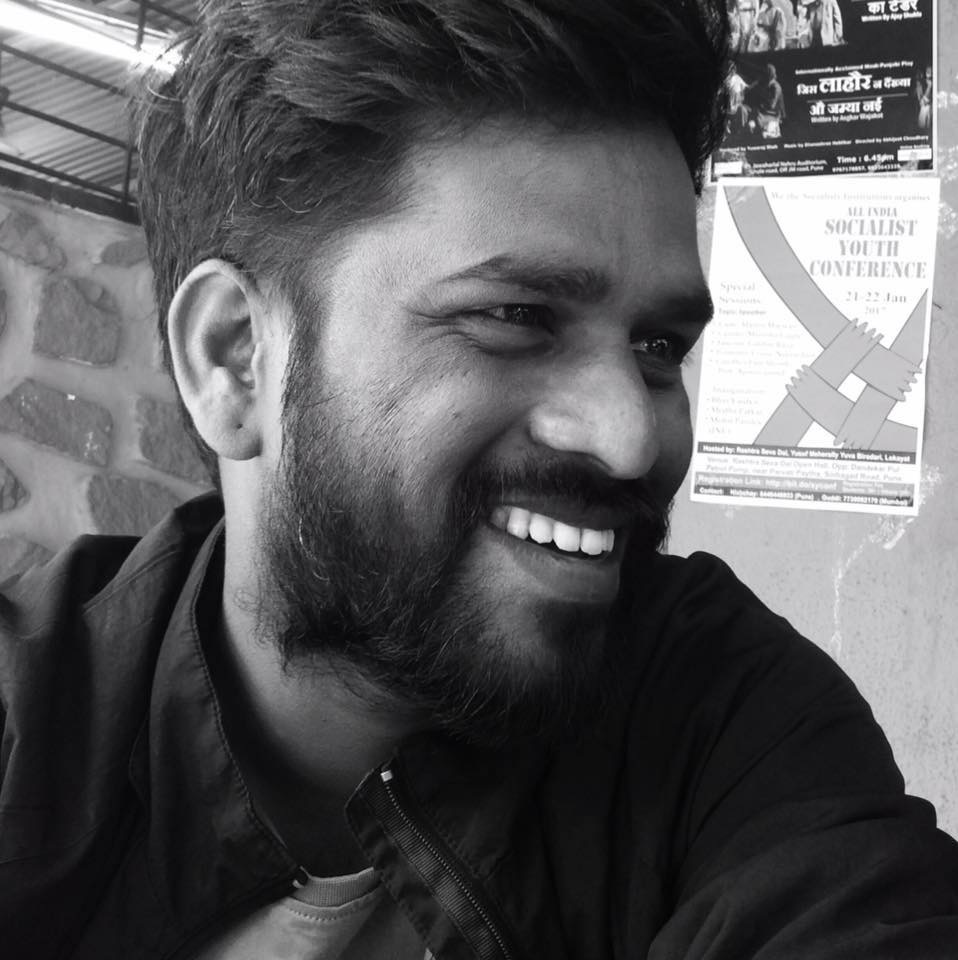This documentary film is about director’s parents who are going back to Bangladesh from India after fifty long years, to visit their birthplace where his parents use to stay in their childhood days to reconstruct their childhood memories one last time. This film is a personal journey of emotions, memories and past divided into two parts called as WAY BACK HOME and IMAGINARY HOMELAND. Partition of India affected nearly 12 million citizens of India Pakistan and Bangladesh at the cost of 1 million lives and riots which resulted into anger hatred and guilt.
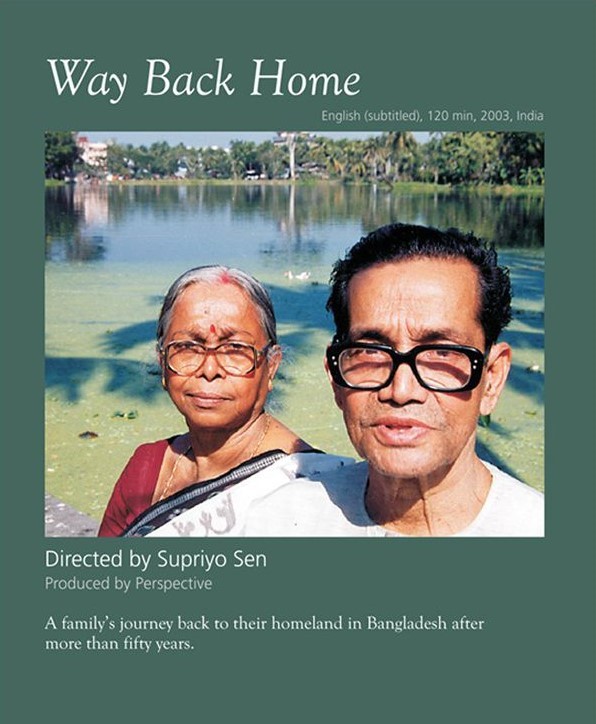
The film start with parents recollecting the memories of childhood where they search for their old house currently present in Bangladesh They are unable to locate the exact place as everything has changed in past 50 years. An emotional background score shown with the glimpse of darkness and silence followed by director’s voice over where he says
Following the same route,
Which they had taken 50 years ago
While fleeing for their lives
There were no comebacks in between
It took half a century to make this mere 10-12 hours journey.
This is a voyage to abandoned homeland,
A journey to the forgotten history
Director Supriyo Sen dedicated this film to minorities and refugees of India Bangladesh and Pakistan. His mother wants to reunite with her cousin who was abandoned from the family for marrying a Muslim man whom she loved back then. This resulted into a dispute between both of them. Her anxious queries lead her to discover that the latter had passed away the previous year.
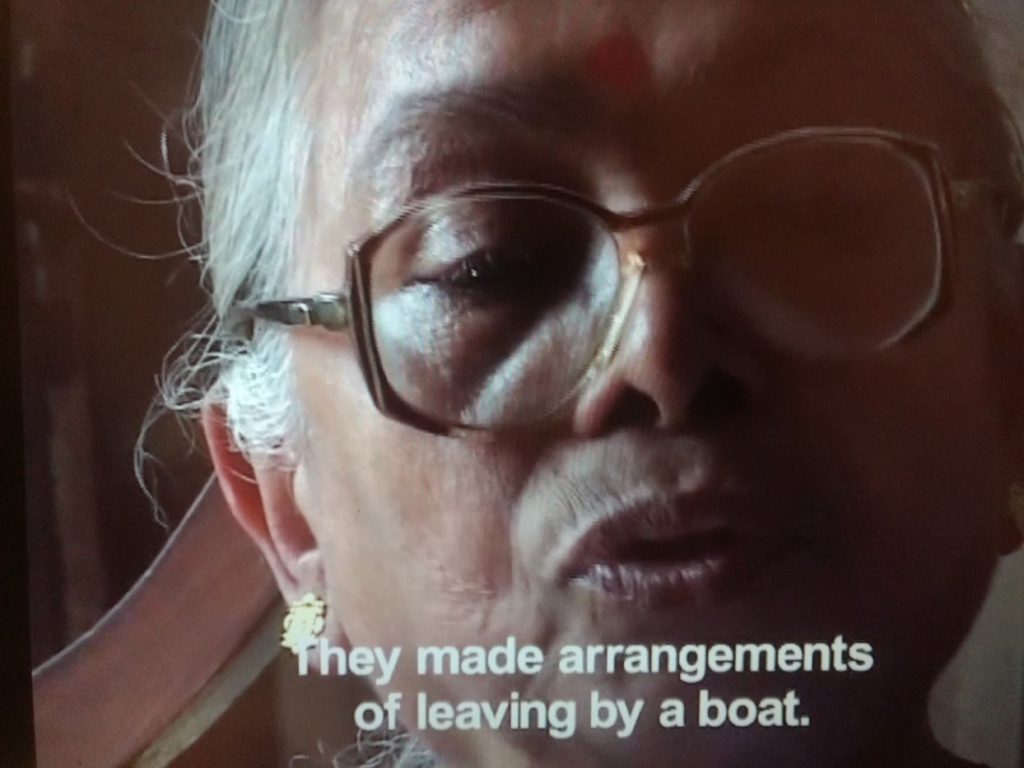
Tears roll down in her eyes as she recollects with remarkable vividness. The harrowing condition under which they stole away from their village in the middle of the night without food and belongings, crossing borders in an attempt to flee persecution. The film however does not exploit the archives of memory only to explore the life of violence. It also looks back to a life of communal togetherness. It seeks to counter narratives which tend to suppress the terrible human experience. The film strives to reconstruct memories of history They still don’t believe that 50 years have passed since their partition and it feels while watching the film Nothing has filled the vacuum of emotions and feelings since India’s independence His father proudly talks about his family but in retrospect he thinks that going back to his hometown Won’t be easy as he anticipated In the beginning. He has tried to settle down in India and make things work in India all his life but his memories stayed back in East Pakistan which is now known as Bangladesh.
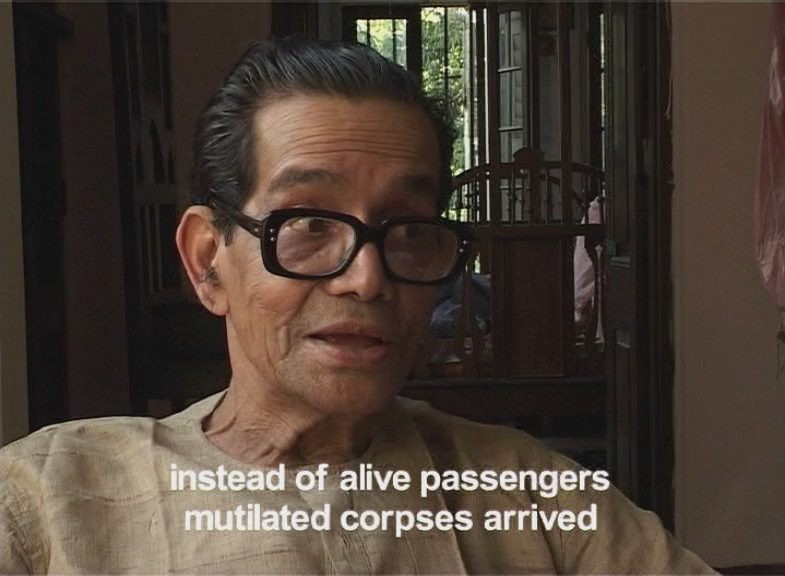
His father keeps on recollecting the memories and asks questions to himself whether this is the small town I left as a young boy? He adds further “Even the trees have changed, the waterways are no longer where they were, the skyline looks different.
Camerawork of Ranjan Palit is brilliant and phenomenon, it clearly captures the emotion of the character and gives justice to the suffering of the characters state of mind. Sumit Ghosh’s seamless editing demonstrates editorial control as the camera offers panoeramic shots of the cityscape, or takes us along those drives within Bangladesh roads, through avenues lined by trees that did not exist before.
It is a journey to figure out what went wrong but the past has changed with time and it is not the same for them. The memory of all the good times that were spent has taken a u-turn now. This is fight between the past and present in the same way as it was during the independence massacre In this search that we are a part of we realize that the beginning itself was a huge mistake We realize it is too far gone to start over again. Hence this revisit journey is called “way back home”. I remember the scene where the father is crying in the college where he was a student in his youth I recollect the scene.
I know there are lots of confusing discussions about India, Pakistan and Bangladesh but the parents never showed any kind of hatred against the splitting of three countries, instead they loved the food, rivers and the time they spend in their hometown Barisal.
Neither the past nor the future has the power to heal the scars and wounds of the emotional pain and hurt. I think this partition have given us nothing to celebrate. Neither this side seems to be happy nor does other side seem to be satisfied. This film gives the no man’s land like feeling for everyone who is watching. I think I haven’t watched something which is so personal yet so public in many years The honesty of Supriyo Sen towards his art is exactly punctuated in the film.
There is a dichotomy of feelings while watching the film, I sensed it , I could feel it but I have no Idea what it is. It is something like when we are with our family, friends or when we are in our hometown. We connect to the nature, ambience and the beauty of our hometown The early mornings, the sunset, the river Crossed in the ship, everything connects with us and we feel that something has completed. So, this film gives us a chance to look into our lives and feel the emptiness. This feeling of emptiness is also shown in the songs. We immediately connect to the music and its texture.
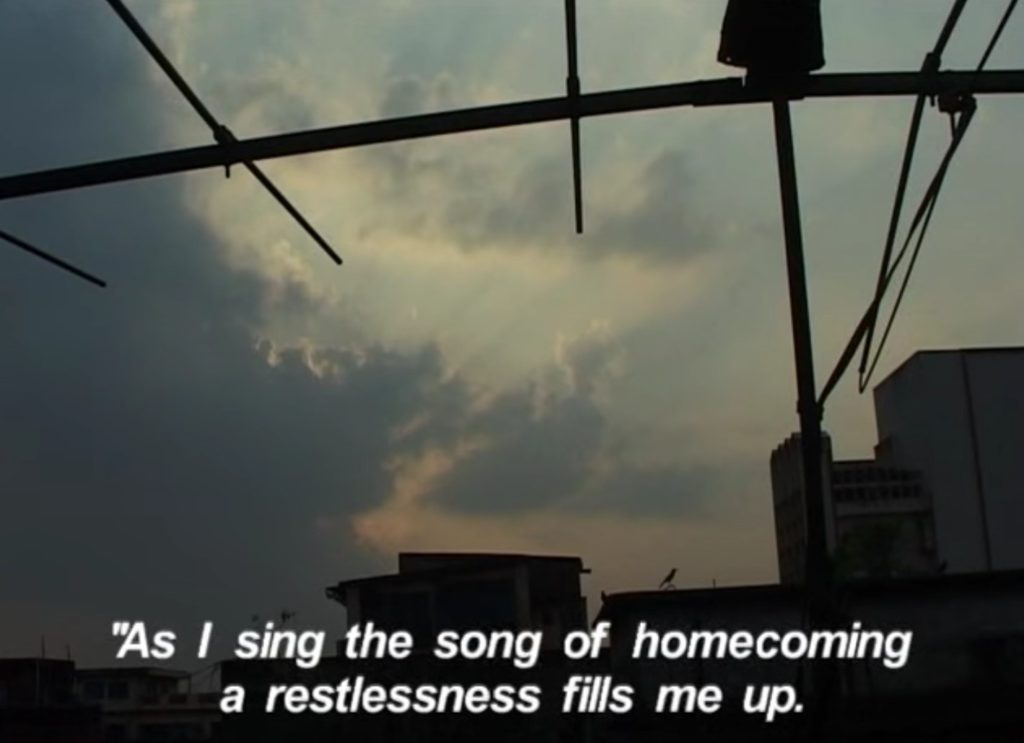
Finally, this film is not a journey or a way back home, it is the finding of new era we feel that the gap between both the countries is bridged by the emotional support which the parents in the film experience.
This film is a personal journey but it still feels socially relevant to the audience. This selfless strange art has checked all the boxes of film-making aspects and analysis. This illusion of good things has lot of harsh realities behind it. We spend lives in the confusion whether you are right or I am right, but the detached clarity and reality of truth is very much ordinary and simple.
These imperfections between the religious beliefs has embraced and turned into creating force of emotions.
The film ends with communal riots that reduced Gujarat into tiny slices of human flesh and blood, spelling out the timelessness and universal reality of violence and homelessness in postmodern world.
Was not mere geographical coverage?
I wanted to reconstruct the lost land by going down memory lane
Moving aside the burning houses,
Smoke covered sky and fragmented dead bodies,
I wish to discover that country of déjà vu,
Which sweeps away all that is,
Impure, ominous and dark

Way Back Home
(Aabar Aashibo Fire)
Genre: Human Rights,Politics
Language: Bengali
Director: Supriyo Sen
After more than 50 years India’s Partition the director follows his parents as they visit their lost homeland in Bangladesh. The mother tries to trace out one of her sisters who was abandoned during the holocaust of partition. The film is about this journey, individual and collective memories and the historical consciousness arise from personal interactions and recollections.


